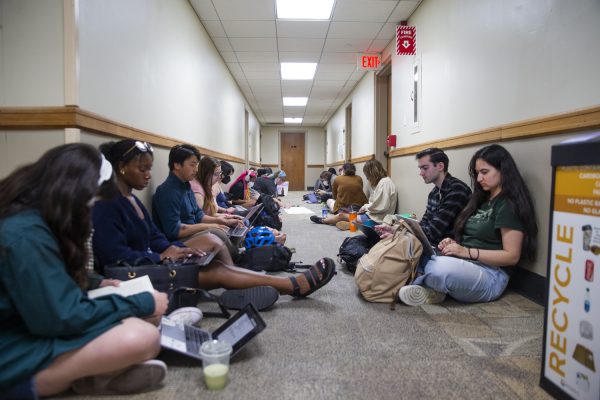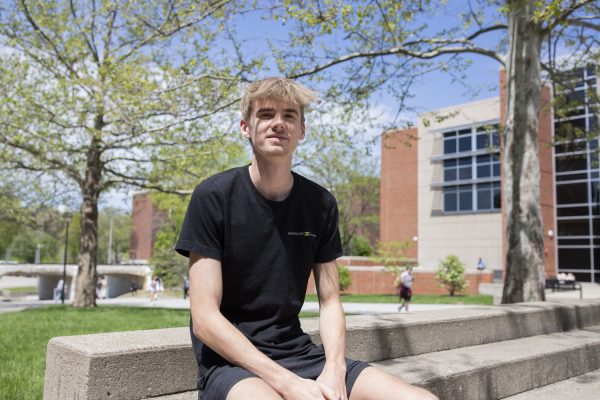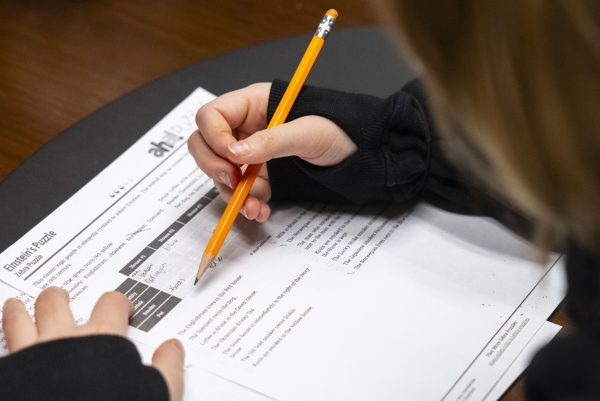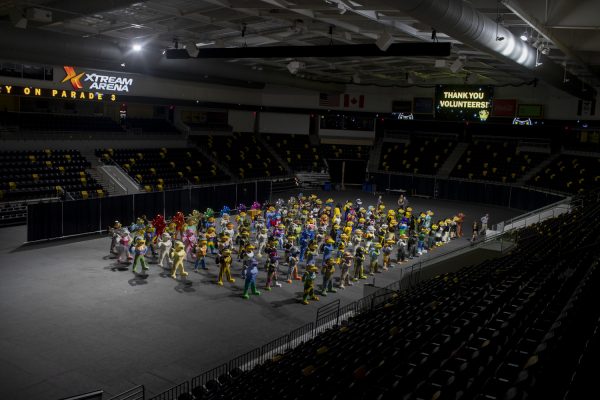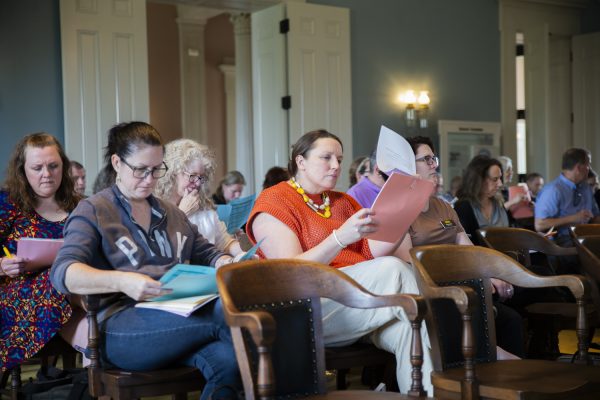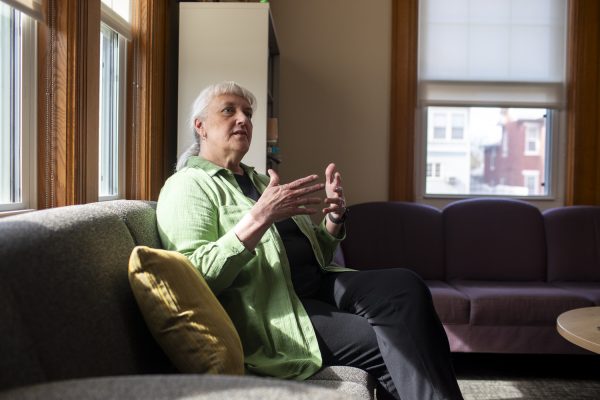Social Emotional Learning track helps teachers create a nurturing environment
The UI College of Education has created a new one-of-a-kind track within their Teacher Education Program. The Social Emotional Learning track focuses on decision making and empathy.
The Lindquist Center is seen on July 30, 2019. (Katie Goodale/The Daily Iowan)
December 12, 2019
Future Hawkeye teachers will be equipped to nurture the classroom environment and focus on improving mental health in youth through a new College of Education track.
The University of Iowa has partnered with local schools through a new Social Emotional Learning track within its Teacher Education Program. This track aims to address concern from teachers about how to engage their classes in a way that students feel individualized and understood in addition to learning standard academic curriculum.
Kari Vogelgesang, UI education clinical assistant professor, said social-emotional learning is a process that students and adults use to make healthy responsible decisions and understand how to feel and be empathetic.
“We need to start training our teachers in a different way,” Vogelgesang said. “Nearly half of all teachers in schools do not feel as though they have the skills to properly help students in social-emotional learning.”
The Teacher Education Program is required for all UI students who wish to receive their teaching license, Vogelgesang said. The new track is just one of four within its Teacher Leader Certificate, which the program requires.
RELATED: New College of Education project aims to treat and prevent substance abuse
Vogelgesang said the Social Emotional Learning track sets the UI apart from other Teacher Education Programs in the nation because no other programs have a professional-development track.
The UI partnered with the Iowa City Community School District to help build and shape the program’s concepts and implementation of social-emotional learning in the classrooms, Vogelgesang said.
“We pair our [UI] students with a student family advocate to put into practice what they have learned through the program,” she said. “Two decades worth of research shows that this work leads to increased academic achievement.”
Coreen Frank, an Iowa City Community School District mental-health coordinator, worked with Vogelgesang to shape the track and implement it in local schools. Frank said the collaboration between the schools and the UI to create the track is critical, because it exposes UI students who are exploring the idea of becoming a teacher to another type of learning experience.
RELATED: Mental-health resources scarce at UI Stead Family Children’s Hospital, researchers say
“Classroom teachers are key individuals for recognizing when a student may need more social-emotional support in order to be successful,” Frank said. “The creation of this track allowed for a learning experience that is directly acknowledging this important role that teachers play in the lives of their students.”
The production of this approach to teaching was spurred by not only hopes of boosting teacher retention, but as a response to increased rates of suicide among youth. She added that the fourth leading cause of death in youth ages 10-14.
Overall, Vogelgesang said the goal is to improve the mental health of children.
UI third-year student Elizabeth Johnson, an elementary-education major, said this process begins by forming connections with students to help them develop as an individual outside of academics.
“Oftentimes, we see the main purpose of school as delivering academic curriculum,” Johnson said. “Although this is important, children cannot learn in an environment where they do not feel safe, comfortable, and understood.”
Johnson volunteered for 40 hours with a Student Family Advocate in a local elementary school and worked on multiple projects to assist the school community.
“After I graduate and begin my career as a teacher, I plan to make [social-emotional learning] the foundation of my classroom,” Johnson said. “I will check in with my students each day to understand how I can help them develop to the best of my ability.”






